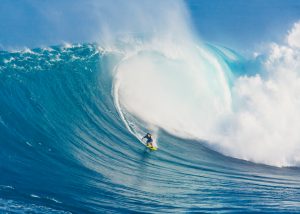A perspective on the three stages of the coronavirus crisis, from business strategist Michele Carson.
Business can be challenging at the best of times, let alone when things are tough. Michele Carson of Influence is a business strategist and coach who helps companies navigate a path to efficiency and growth, including adapting as commercial environments change.
Michele has helped thousands of businesses, which has given her a broad perspective of how businesses respond to difficult situations, and interesting insights as to what COVID-19 might mean for the business community. In this interview, she explains how she sees the global pandemic impacting business in three Waves.
Wave 1 – Response
“The first step is a business’ response to the current situation”, Michele says. A response is different to a reaction. A reaction is a knee-jerk, it’s made automatically, without control, without stopping to pause, breathe and assess. A reaction might be ‘What can we cut? Shut everything down. Give all the staff notice’.”
“Whereas a response means getting up into the helicopter and taking a look at the whole of the business. It means assessing what has changed and what needs to change. It is rapid, but considered.”
“A response answers the question: ‘What do I need to change to keep the business alive?’. A response might reduce staff hours, or other immediate ways to reduce cost but stay operational. That’s why it’s so important to have a strategic action plan – it makes it much easier to assess the likely impact of outside forces, like COVID-19 and to adapt accordingly.”
Michele’s clients all have those strategic action plans: plans that identify their business goals and the exact, measurable actions needed to achieve them.
“Crisis or no crisis, it’s proven that businesses with a strategy reach their goals up to 30% faster”, says Michele, “and I’ve seen it first hand, with clients achieving their three year goals in as little as 18 months. In the current situation, those plans make all the difference to being able to make a measured response.”
Communication is essential, believes Michele, throughout each wave. As part of the response, a business must assess its core customer message and if/how it needs to change. It must share its response with customers, staff and the market. A business should share its expertise and show leadership to its customers.
One of the dangers of a reaction rather than a response, is that Michele has seen it lead to messages that are not aligned to a company’s brand and which can therefore do long term damage.
Wave 2 – Short term planning
After the response, Michele believes, comes the time for planning for an extended lockdown or restrictions. That could be anywhere from two to six months, so it’s essential to understand what needs to happen in that timeframe.
“Wave 2 sees businesses planning how to change their product or offering to meet revised client needs or new ways of working. They will need an understanding of the broader business environment, and how they can keep their business working through the lockdown.”
“They’ll be looking at how to manage a workforce that is no longer co-located, they’ll be adapting manufacturing processes, or their supply chain, or their sales activities. “
Communication with staff and clients will explain what has changed and how the business will operate. Clear information-based communication is essential at this stage.
During Wave 2, the lockdown/restricted period, businesses should also take the opportunity to start researching for Wave 3.
Wave 3 – the new normal
Wave 3 is ‘the other side’. After the immediate panic is over, and the current tight restrictions are over.
“The impact of coronavirus won’t just suddenly go away”, says Michele, “and businesses must plan for a sustainable future. They have to be ready to cope with the longer term economic impact of the lockdown.”
“They need to plan to execute in the new world and have a plan for what they will do differently – the problems they will need to solve and what resources they’ll need to do so.”
As businesses plan for Wave 3, their communication will follow. Times of change need communication more than any other, if businesses are to avoid confusion and losing a leadership position.
“The important thing”, says Michele, “is that businesses understand that the situation is changing and will continue to change throughout this process. Most of my clients are in Wave 1, or the start of Wave 2. But whatever the stage they’re at, businesses, like surfers, need to ride the wave, not be behind it.”
Michele Carson is a business coach who specialises in helping companies build a strategic action plan to set direction, grow capacity, manage change and maximise profit. Find out more at compellinginfluence.com or contact Michele at .

